International Women’s Day 2024: Inspire Inclusion
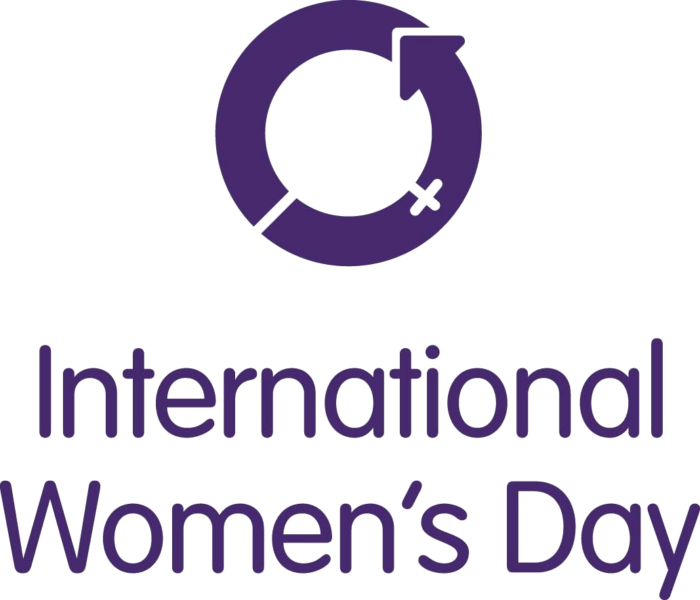
The women shaping healthcare communications
Here at Aurora, our bright, creative and energetic team represents diverse backgrounds from PhDs to ex-journalists and much in between! This diversity ensures our ability and agility in the ever-changing healthcare landscape. Today, on International Women’s Day 2024, themed ‘Inspire Inclusion’, we shine a spotlight on our barrier-breaking female colleagues, whose interests in the sciences have led them to bring their enthusiasm and skills to healthcare communications.
Unreached equality in science
Statistics reported by The Royal Society reveal significant gender disparities in science, with three men for every two women. This could potentially be attributed to a lack of support for women and girls’ scientific interests, resulting in the underrepresentation of women in the sciences. While there’s broad awareness of the need to enhance access for women and girls in science, substantial actions, particularly for marginalised groups, remain insufficient.[1]
With these challenges in mind, it is crucial to recognise and celebrate the achievements of women with scientific interests, supporting an inclusive environment that empowers them to thrive. This sentiment aligns with the spirit of International Women’s Day, a global observance dedicated to acknowledging and advocating for the rights and contributions of women, including in the workplace and in the sciences.
Storytelling and science
Healthcare communications occupies an intersection between science and creativity, serving as a bridge between the technical intricacies of medical advancements and the need for accessible messaging. It is within this dynamic space that the power of scientific storytelling can be harnessed to help transform lives.
For our Scientific Lead, Georgia Hartnell, scientific storytelling is central to her motivation to work in healthcare communications. “Science has the potential to transform lives, but science only becomes truly transformative when it is known by those who need to know it. This underpins my passion for scientific storytelling — distilling complex data into compelling narratives that resonate with patients and clinicians and ultimately motivate change.”
Reflecting on this year’s ‘Inspire Inclusion’ theme, Georgia notes the incredible support she has had from male and female colleagues throughout her career. “For me, ‘Inspire Inclusion’ means mentorship from people who advocate for representation in the workplace. I have been so fortunate to have had access to supportive mentors at every stage of my career, and I hope to be a similar role model for other women in their healthcare communications”.
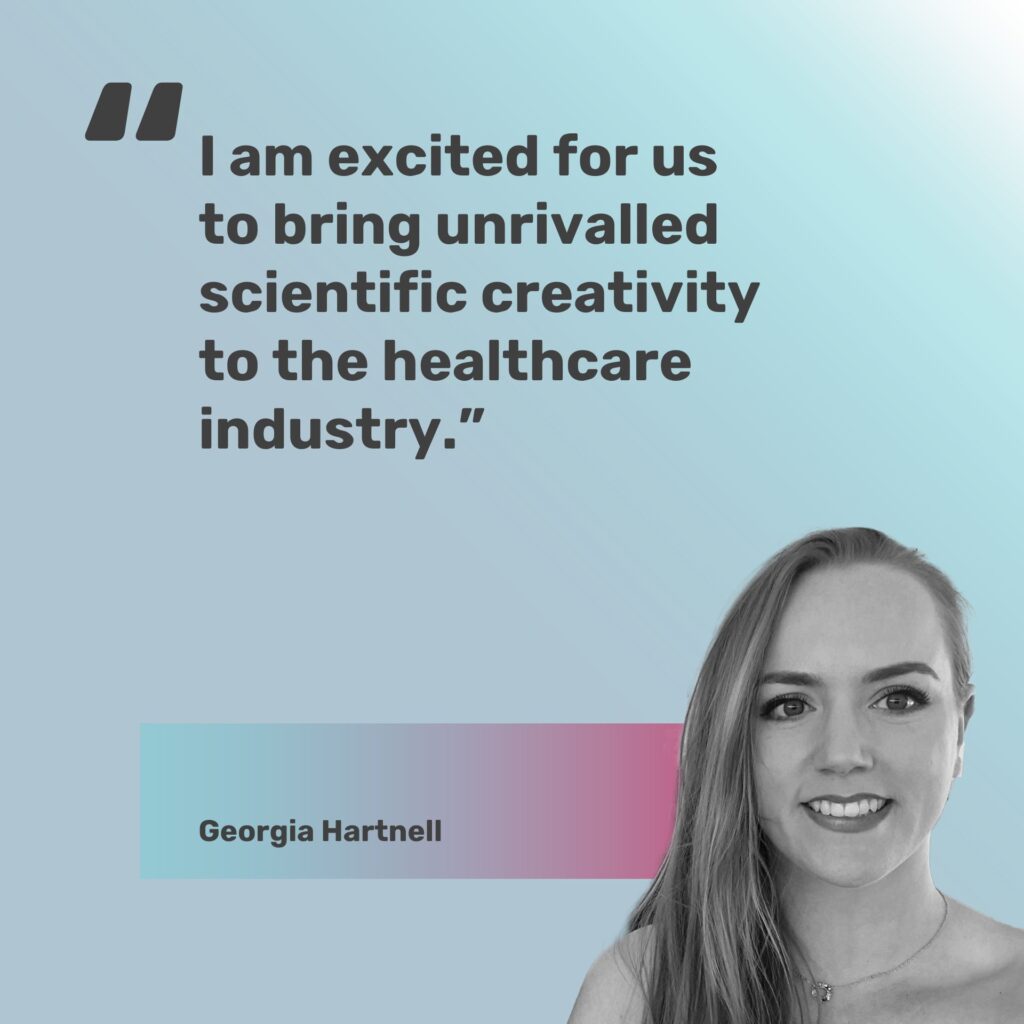
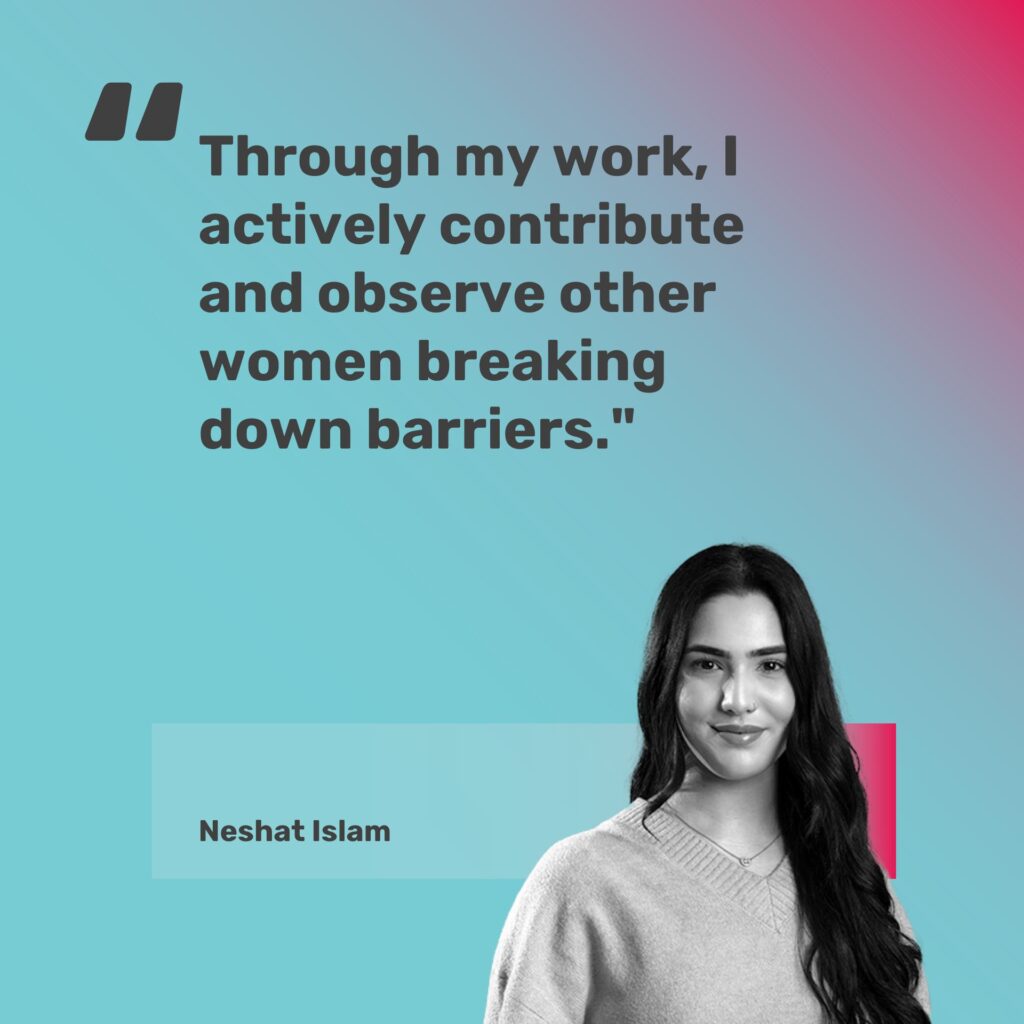
Leveraging a scientific degree in healthcare communications
As Georgia notes, working in healthcare communications means science is the foundation of everything we do. An interest in the sciences is important to healthcare communications as it provides the basis to navigate complex medical information and communicate it effectively.
For Neshat Islam, Senior Account Executive, transitioning from her degree in Biomedical Science to healthcare communications was a natural progression in her career. “Moving from Biomedical Science to healthcare communications felt like a seamless progression. At Aurora, I bring my understanding and curiosity for disease indications and mechanisms to the research and conversations I undertake daily, while the analytic skills I developed from my degree complement the bigger-picture strategic work we complete for our clients.”
In her role at Aurora, Neshat believes in embodying the values of ‘Inspire Inclusion’ every day. “I strongly believe in the importance of women’s representation in the workplace, and I feel extremely fortunate to be surrounded by like-minded colleagues who make me feel supported and valued. Through my work, I have the opportunity to actively contribute and observe other women breaking down barriers in the workplace.”
Utilising behavioural science
While Neshat has been fortunate to receive encouragement throughout her academic and professional experiences, we know that this is sadly not the case for everyone. The recent UK Parliament Inquiry into Diversity and Inclusion in the sciences highlights the underrepresentation of women, certain ethnic minorities, people with disabilities and those from disadvantaged backgrounds. Learned behaviours and unconscious bias play a pivotal role in the low participation of girls in science subjects, as stereotypes like “science subjects are meant for boys” discourage their involvement. Behavioural insights have been applied to address this challenge, with the UK Government achieving positive outcomes through targeted efforts to increase girl students’ uptake of science subjects at A-Level.
Last year, Molly Stephenson, Senior Account Director and our resident behavioural expert, attended the Nudgestock behavioural science festival, where she heard from Mary Ann Sieghart on ‘Fighting the authority gap.’ This discussion delved into the impact of bias on behaviour and performance, or ‘stereotype threats,’ which affect women personally, academically and professionally.
Molly reflects, “I loved hearing from Mary in her book, The Authority Gap, she describes why and how women are still taken less seriously than men and what we can do about it. A key takeaway is the indisputable impact of representation in making these shifts toward better circumstances for women and the benefits for everyone in society when this happens.”
Further emphasising the importance of representation in bringing about the necessary changes for women in the workplace and beyond, Molly notes, “With representation having profound impact on our own judgments of our self-worth and capabilities, I’m grateful to work for an agency that recognises and embraces the positive impact of gender diversity in leadership.”
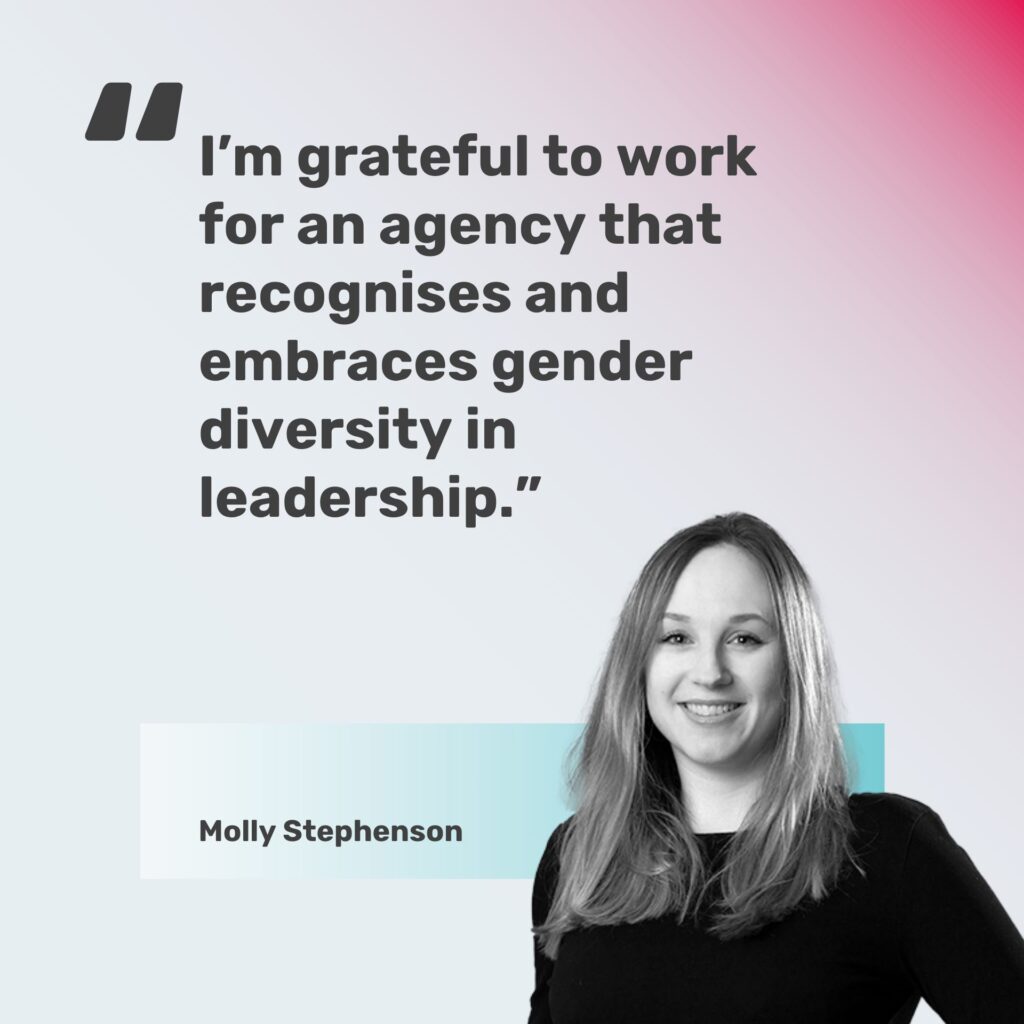
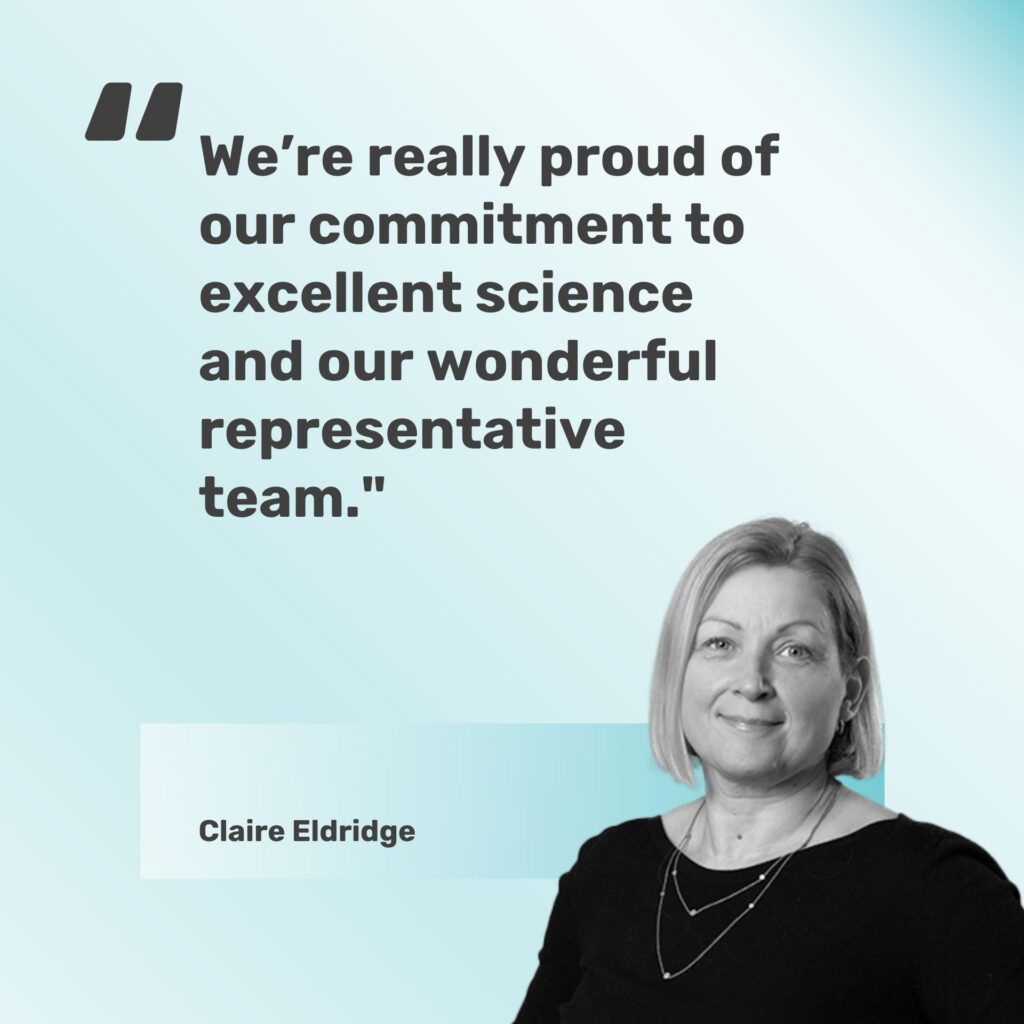
Being the change we want to see
At Aurora, we aspire to be a representation of an agency where women in science are not only encouraged but valued. While there is still work to be done, we are committed to championing women in their development as future leaders in health communications and improving diversity across our industry and the wider healthcare landscape. And finally, we take pride in collaborating with clients who ‘Inspire Inclusion’.
Our CEO Claire Eldridge said “We’re really proud of our commitment to excellent science that underpins all the amazing work we do for our clients. We’re especially proud of our wonderful, representative team that delivers on this commitment every day.”
Here’s to our incredible team who all work to ‘Inspire Inclusion’ every day!
[1] It’s important to note that The Royal Society’s publication did not cover data on non-binary individuals in the sciences.


